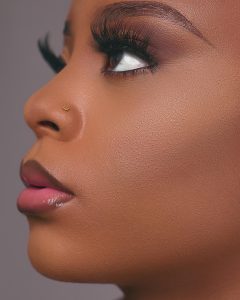 Makeup has the power to enhance our appearance and boost confidence, but improper use—especially around the eyes—can lead to infections. These can cause discomfort and potentially serious damage to the eyes. This guide covers common eye infections related to makeup, their causes, symptoms, prevention, and treatment.
Makeup has the power to enhance our appearance and boost confidence, but improper use—especially around the eyes—can lead to infections. These can cause discomfort and potentially serious damage to the eyes. This guide covers common eye infections related to makeup, their causes, symptoms, prevention, and treatment.
Causes of Eye Infections from Makeup
- Contaminated Makeup Products
Makeup products used near the eyes can easily become breeding grounds for bacteria. Contamination can occur from the environment or from direct contact with the skin or eyes. Using contaminated cosmetics can result in infections such as styes, pink eye, or keratitis. - Expired Products
Using makeup past its expiration date increases the risk of infections. Over time, preservatives break down, making it easier for bacteria to grow. Once the makeup formula changes, it can also cause allergic reactions and serious eye infections. - Improper Application Techniques
Not washing your hands before applying makeup can transfer harmful microorganisms to your eyes. Additionally, using dirty brushes or applicators can be risky for both your skin and eyes. Keeping tools clean is key to avoiding eye infections. - Sharing Makeup
Sharing makeup products can spread bacteria, viruses, and fungi. It’s a quick way to contract conjunctivitis or other infections, including herpes. Makeup items like mascara, eyeliner, and lip gloss are especially vulnerable to contamination since they come into direct contact with mucous membranes. - Sleeping with Makeup
Leaving makeup on overnight can block pores, oil glands, and hair follicles, leading to potential infections like styes and blepharitis. Mascara, eyeliner, and lash serums can flake off during sleep, causing irritation or conjunctivitis. - Allergic Reactions
Certain individuals may have allergic reactions to ingredients in makeup, which can lead to inflammation and secondary eye infections.
Potential Eye Infections from Makeup
- Conjunctivitis (Pink Eye): Can occur from bacteria, viruses, or allergens transferred via contaminated makeup products or dirty applicators.
- Styes (Hordeolum): Bacteria from makeup can block oil glands along the eyelid, causing infection.
- Blepharitis: Inflammation of the eyelid caused by bacterial buildup from makeup products.
- Keratitis: Infection of the cornea, often triggered by dirty eye makeup coming into contact with the eye.
- Fungal Eye Infections: Though rare, fungal infections can arise from expired or improperly stored makeup.
- Meibomian Gland Dysfunction (MGD): Can occur when makeup, especially eyeliner, blocks the meibomian glands.
- Allergic Conjunctivitis: Caused by allergic reactions to makeup ingredients, leading to symptoms like itchy, red, and watery eyes.
Symptoms of Eye Infections from Makeup
Identifying an eye infection early can prevent complications. Common symptoms include:
- Redness in the eyes
- Swelling of the eyelids
- Itching or burning sensations
- Discomfort in or around the eyes
- Watery or pus-like discharge
- Sensitivity around the eye area
- Temporary blurry vision
If you notice any of these symptoms, stop using the makeup immediately and consult a healthcare professional for proper treatment. Maintaining clean makeup habits and avoiding shared products can help protect your eyes from infections.
Prevention Tips for Eye Infections from Makeup
- Hygiene Practices
- Always wash your hands before applying makeup.
- Avoid sharing makeup products with others.
- Remove all makeup thoroughly before bed using a gentle makeup remover.
- Product Care
- Clean makeup brushes and applicators regularly to reduce bacterial buildup.
- Replace mascara every three months, and other eye makeup products every six months.
- Discard expired makeup products to avoid contamination or harmful formula changes.
- Allergy Testing
- Test new makeup products on a small patch of skin before applying them near your eyes to check for allergic reactions.
Eye Infection Treatment Options
If you suspect an eye infection, stop using all eye makeup immediately.
- Do not self-diagnose. Seek advice from an eye doctor for proper diagnosis and treatment.
Depending on the type of infection, your eye doctor may prescribe:
- Antibiotic or antiviral eye drops
- Ointments
- Oral medications
Avoid wearing makeup until the infection has fully healed to prevent further irritation or contamination.
Conclusion
Eye infections from makeup are preventable with proper hygiene and careful product use. If you experience any symptoms of an eye infection, seek medical attention promptly to avoid complications and ensure a quick recovery.


